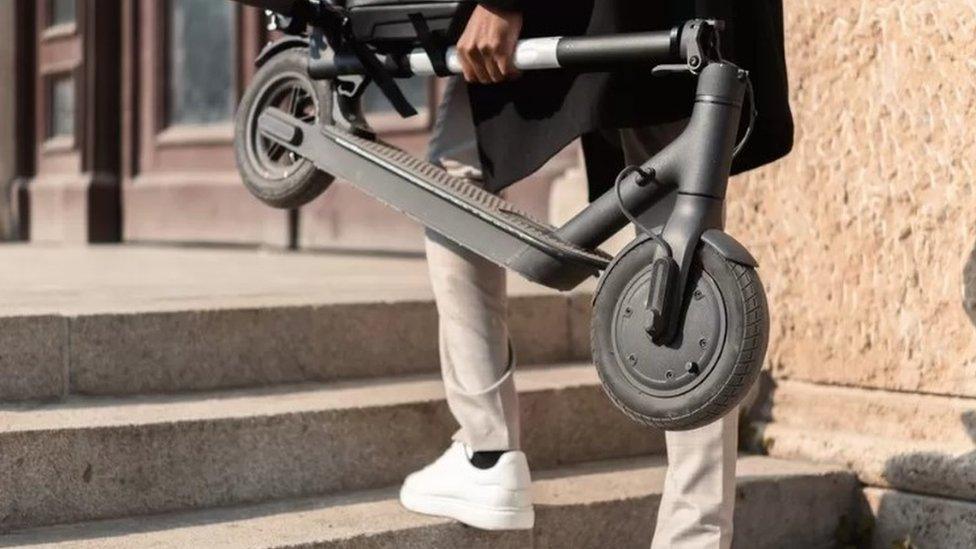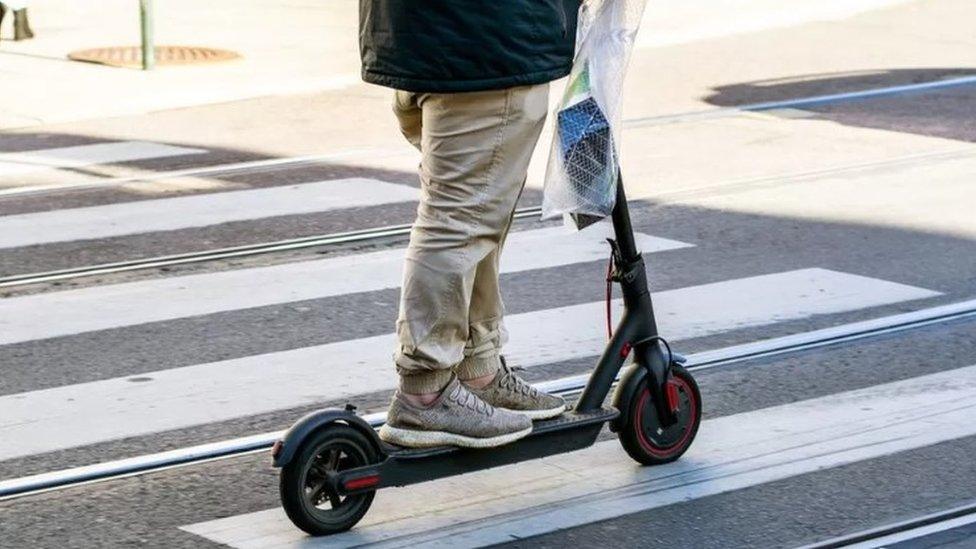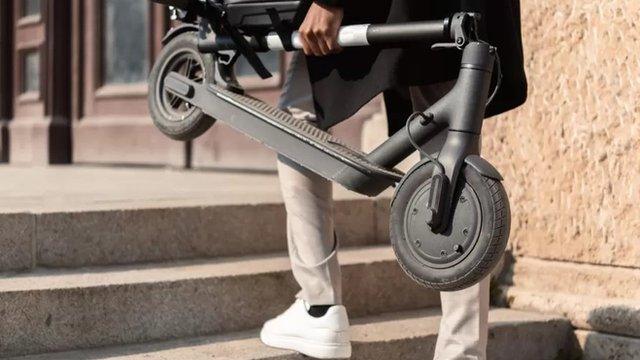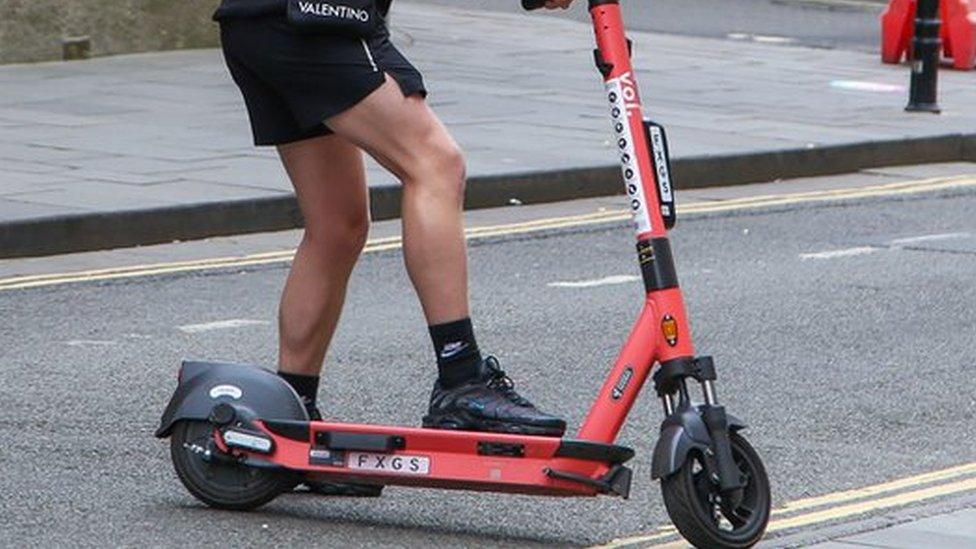Thames Valley Police warning on e-scooters crackdown
- Published

E-scooters are effectively illegal to use on public roads and pavements
Parents could be fined up to £300 and given points on their licence for allowing their children to use e-scooters, a police chief has warned.
Thames Valley Police chief constable Jason Hogg said it was planning a crackdown on the scooters, which are effectively illegal to use in public.
He urged parents not to buy e-scooters as Christmas presents.
The only exception for the use of e-scooters in public is for those hired as part of a council rental scheme.
Just like cars, the driver of an e-scooter needs to have a licence, insurance and tax to drive one on Britain's roads, and they are not allowed on the pavement.
Speaking at a meeting of Wokingham Borough Council, Mr Hogg said that as it was not currently possible to get insurance for privately owned e-scooters, "it's illegal to use them on the road or in public spaces".
"We are going to be moving to enforcement very, very quickly," he said.
"We are going to be prosecuting the parents for no insurance - for use, cause, permit - in January and we will be seizing a lot of these scooters very, very shortly."
The penalty is the same as for driving without insurance - £300 and six points on a driving licence or an unlimited fine and disqualification if the case goes to court.
Mr Hogg said a police publicity campaign would soon be launched to urge parents not to buy e-scooters ahead of Christmas.
'User accountability'
However he said police would be cautious when deciding whether to pursue people on e-scooters following the deaths of teenagers in South Wales and Greater Manchester who were riding e-bikes, which are legal to ride on UK roads.
"I am not prepared to put my officers in a situation where they lose their livelihood and where they are effectively prosecuted," he said.
Buckinghamshire Council, Slough Borough Council and Oxford City Council currently operate e-scooter hire schemes as part of a national trial.
A Department for Transport spokesperson said: "Safety is at the heart of our e-scooter trials which is why we are extending them to May 2026, in order to gather further evidence as the technology develops and to ensure any future legislation balances safety, user accountability and market growth.
"We will consult in due course on the detail of possible regulations, including minimum rider ages and maximum speeds - this will provide vital information to help shape next steps."

Follow BBC South on Facebook, external, X, external, or Instagram, external. Send your story ideas to south.newsonline@bbc.co.uk, external.
- Published31 August 2023

- Published2 March 2023

- Published1 April 2022
